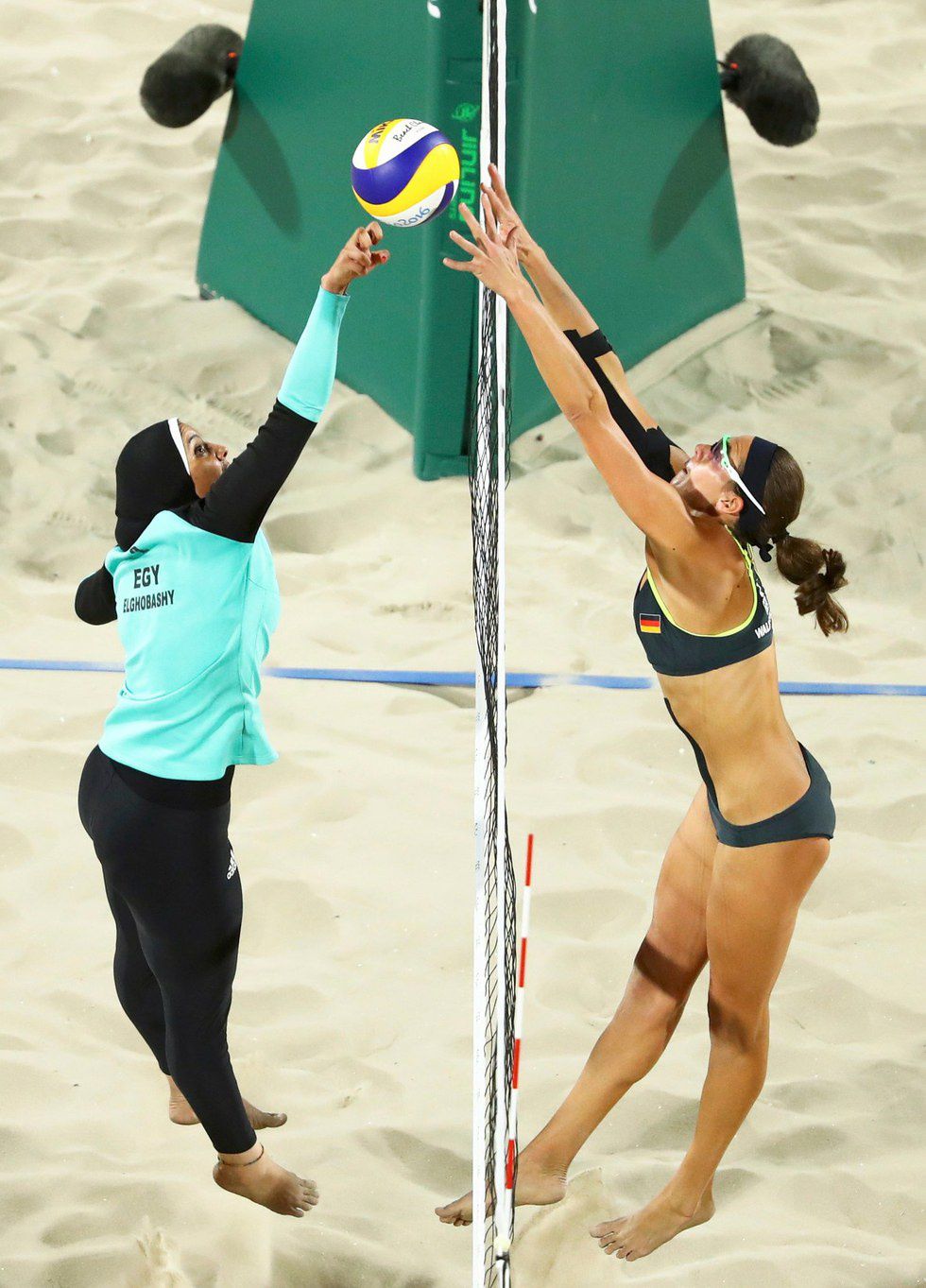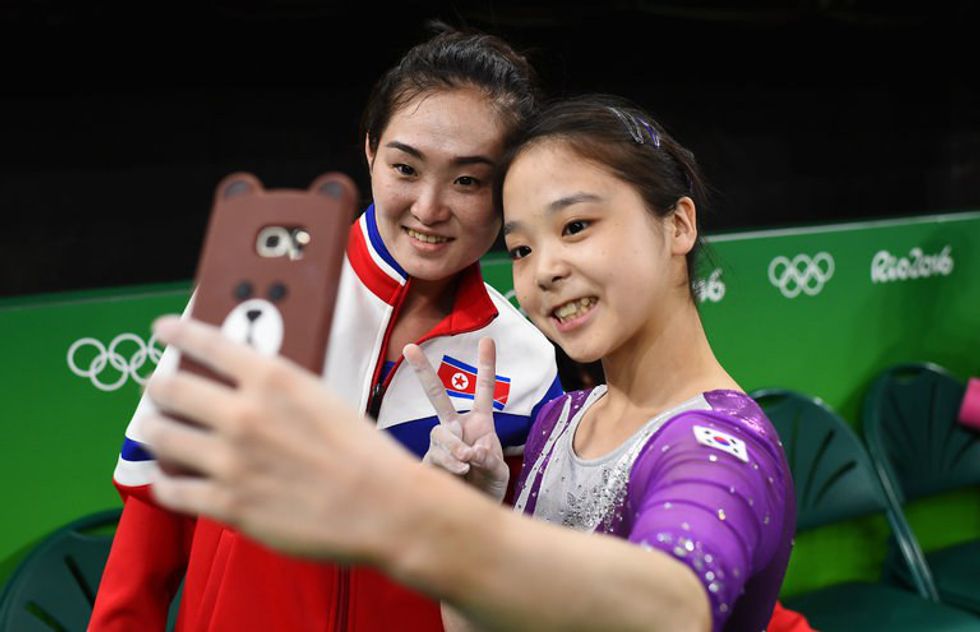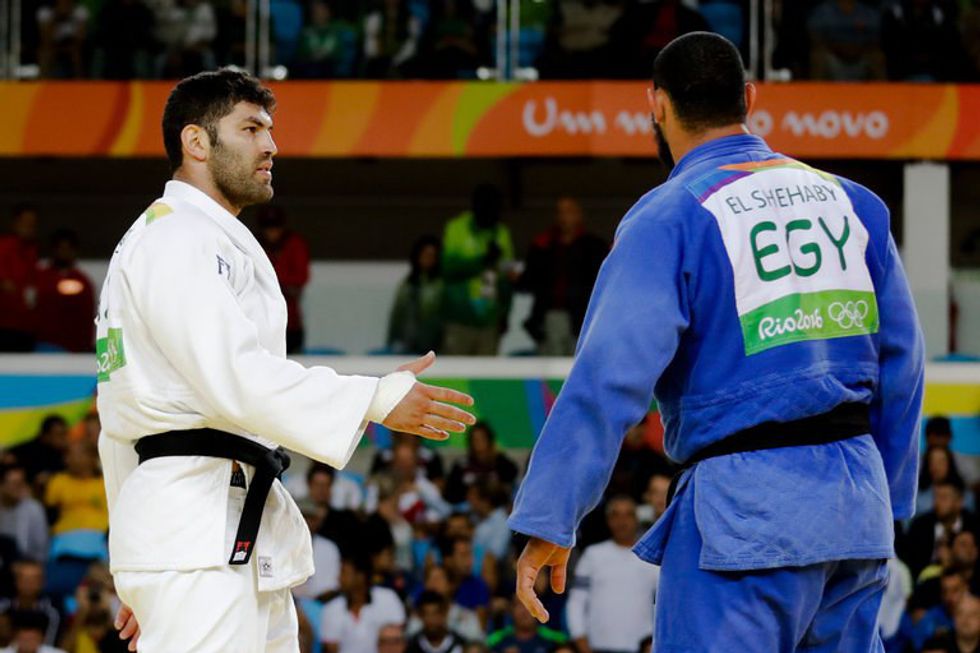Walk into my house any day this month, and you'll hear the distant hum of the Olympics. With each energetic announcement, roar from the crowd and pant from an exhausted athlete, a new noise escapes our TV, travels through the halls and infuses each room - and each member of my family - with an athletic spirit.
The Olympics brings my family together. After dinner, rather than sitting alone, binge watching Netflix shows and iTunes movies on our respective devices, we'll gather in the family room and cheer on Team USA. We don't watch swimming, gymnastics and beach volleyball because we play those sports. We watch because the act of cheering for a common team is a connective glue. It brings us happiness, enables us to support a larger cause and inspires us. The games embody the American spirit - having the persistence to overcome obstacles and the tenacity to pursue daunting dreams.
The power of watching the Olympics to my family is a microcosm for the power the games can have across the world. Just as enjoying sports brings me closer to my brothers and parents, sports can bring together people of disparate backgrounds, beliefs and traditions.
I find Roger Cohen's New York Times article, "Olympians in Hijab and Bikini," and the photo that inspired it by Lucy Nicholson of Reuters, incredibly powerful illustrations of this truth.
The cultural differences between these two Olympic beach volleyball players, Doaa Elghobashy of Egypt and Kira Walkenhorst of Germany, are conspicuous. As Roger Cohen puts it, "The photo, by Lucy Nicholson of Reuters, juxtaposes two women, two beliefs and two dress codes, brought together by sport. The world confronts less a clash of civilizations than a clash of identities, concertinaed in time and space by technology. The West’s image of Islam and the Muslim image of Western societies are often mutually incommunicable; the incomprehension incubates violence."
The lack of understanding that exists between two cultures, in this case Muslim and Western, is deep rooted due to uninformed judgements and assumptions. This leads to and promotes "clashes of identity" throughout history. Cultural differences in and of themselves can never be ignored or erased. The fact that each culture is unique in practice and belief actually adds value and meaning to our world. But, the deeply planted roots that perpetuate misunderstanding can be weeded out through universally understood activities that bring people together under something greater than any single belief system.
Athletes casting their countries' political disagreements aside for the sake of the game is a hugely significant gesture. Last week, two gymnasts, Lee Eun-ju of South Korean and Hong Un-jong of North Korea, took an unexpectedly amicable selfie in the Olympic stadium.
Even though North and South Korea have technically been at war for decades, the two women put differences aside. The photo went viral, and gained the media traction necessary to encourage other citizens, especially young ones, to use the Olympics as a way of finding common ground.
Common ground, however, can't be found if people are unwilling to seek it out and refuse to look past religious, political and cultural differences. We've seen this kind of smallness in Rio, when Egypt's Islam El Shehaby declined to bow to Israel's Or Sasson at the beginning of their judo match, and refused to shake his hand after Sasson won. The Olympics are meant to be a platform for fair, diplomatic athletic competition, not international disagreement.
To refuse to engage in respectful athletic competition because of the country your opponent represents is to embrace cultural animosity and misunderstanding. It brings hatred and judgement into an activity that should yield mutual reverence. It contradicts the Olympic spirit and ignores the positive impact that activities, like sports, can have on global cooperation if done properly.
Sport is just one example of an activity with this power. Music, art and even food can be equally effective connective tissues. In sharing and enjoying these things, respectfully and openly, with people different than us, we create a passageway through which we can look past difference and find true common ground.






















